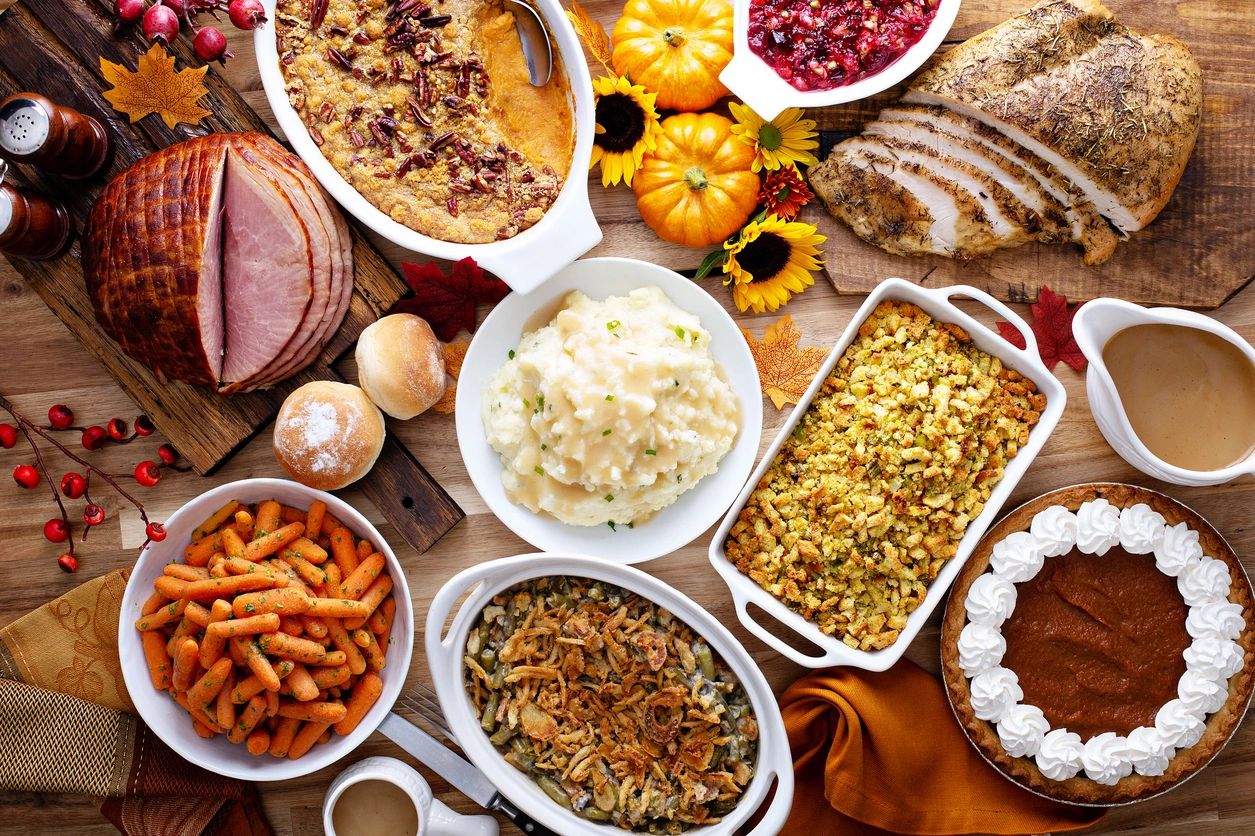Halloween has passed and the holiday season is in full swing. This week, thoughts turn to turkey, pumpkin pie, gratitude, football and the Macy’s Thanksgiving Day parade. For some, Thanksgiving is a welcome day of food, family, and relaxation. For people living with social anxiety, it may be anything but relaxing. Instead of dreaming about food and the game, they may be concerned about making it through the day because of all the possible social anxiety triggers:
- Travel – Thanksgiving crowds at the airport or on a bus, train or subway are larger than usual. The possibility for social interactions (making eye contact, talking to the person next to you) increases.
- Preparation – Holiday preparation can be stressful for anyone. Throw in the added anxiety about going to the store or having a group of people in your home, and the stress level increases.
- Eating with others – Many people think of dining with others as a fun, social event. For someone with social anxiety, it may be seen as more of a hurdle or something to suffer through. The expectation of dinner table discussion and the simple act of others watching you eat may cause the social anxiety sufferer to lose their appetite.
See also: Overcoming Social Anxiety was HARD, but it changed my life…
- “Public” speaking – In some homes, Grandma always says the prayer before the meal. In others, the act of saying grace or going around the table and sharing what you are thankful for is the norm. Speaking out loud can be hard enough if you have social anxiety, but being asked for a spontaneous prayer or to share what you are personally grateful for may initiate panic mode.
- Socializing – As if the travel, preparation, eating and possibility of impromptu public speaking weren’t enough, the whole POINT of Thanksgiving (besides food and gratitude) is usually socializing with family and friends. While small gatherings of familiar people may be more comfortable, sometimes holiday gatherings mean new people, distant relatives, and large groups.
With all of these opportunities for stress, someone with social anxiety may just decide to skip Thanksgiving a la John Grisham’s book, “Skipping Christmas.” The characters in that book didn’t actually end up skipping Christmas, and you don’t need to skip Thanksgiving. There are ways to handle the stress and anxiety of the holiday:
- If you plan to travel, try to travel with someone you trust. Let them encourage you during moments of anxiety. If you decide to travel alone, prepare well to reduce the unnecessarily stressful moments. Arrive early for your flight/bus/train. Find your gate. Try to spend some of your waiting time doing deep breathing and relaxing with a book or listening to music. As you travel, remind yourself that some anxiety is expected, and that you can just sit with the anxiety until it passes.
- If you are hosting the celebration, do what you can before the actual day to reduce demands on you. Set the table the day before. Splurge and have your groceries delivered via an online service. Enlist help – make the main dish and have family and friends bring the sides, or order a Thanksgiving meal from a local grocery store or restaurant. If you have time, try to exercise that day, even if it’s a short walk or jog. This may reduce your stress by increasing your endorphins (happy brain chemicals) and giving you an extra boost for the day.
- Do an “eating in front of people” trial run. Go out for coffee, or invite 1 or 2 close friends over for dinner. Challenge your anxious thoughts about eating in front of others. Chances are, people are so into their own food, they aren’t taking the time to focus on how you look/what you’re eating/if you are or aren’t contributing to the conversation.
- If you are hosting, you can ask someone else in advance to say the before-meal prayer or lead other religious or non-religious traditions. If you are heading to grandma’s house, call her before to let her know that while you love her and love her food, you just don’t feel comfortable speaking in front of everyone. If you’re feeling brave, go for it. Practice out loud for your spouse. Read the script to yourself in the bathroom mirror. You may just surprise yourself. The “I will never be able to speak out loud in front of people,” may change to “ I can do it imperfectly in front of my close family and friends.”
- The actual socializing may be the most anxiety provoking, but it doesn’t have to be. Most likely, these are people who know and love you. You can sometimes choose to be with a smaller group, or if you feel better on your turf, offer to host. If you find yourself at a large gathering and you have challenged thoughts for similar situations in the past, take time to review them before the event. Though you likely want to reconnect with relatives you see seldom see, it’s okay to spend plenty of time with your support people – spouse, children, parents or best friend. If you need a break from the chaos, find a place to do some breathing exercises, go for a short walk, or talk to someone you trust. If you’re keeping a journal, bring it with you and look back at previous entries. See how you successfully handled group gatherings in the past. You can do it!
By changing your thoughts and behaviors, even in the smallest of ways, you can change your life.




